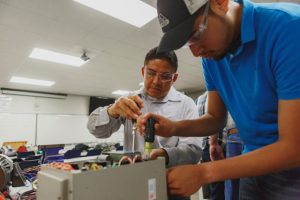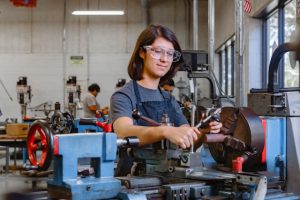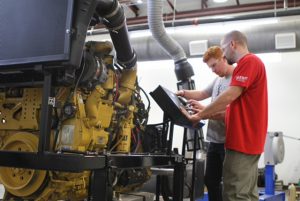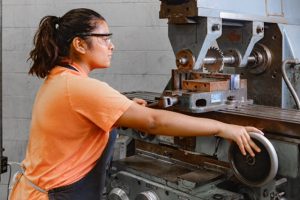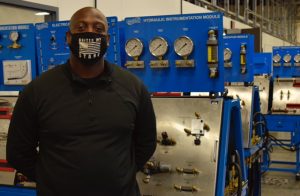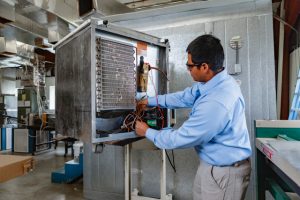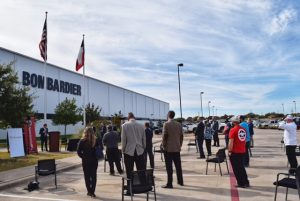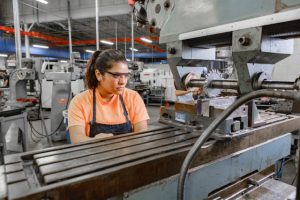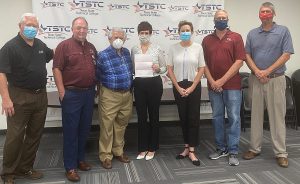(RED OAK, Texas) – Electricity drives not only productivity, but also job creation.
Warren Ketteman, president and chief executive officer of the Waxahachie Economic Development Corp., said the availability of electricity is a key factor for prospective companies interested in the city. The Waxahachie EDC and Texas State Technical College in North Texas work together to ensure that there is a trained workforce for new and existing companies to fill jobs.
“With manufacturers, they want to know the proximity of available power, or if it is not in near proximity to the site, how soon can it get there,” Ketteman said.
Nick Scarpinato, lead instructor in TSTC’s Electrical Power and Controls program at the North Texas campus, said he has talked to representatives of four companies in the last month regarding employment opportunities for students. This is a sign, he said, that the job market is doing well.
“They (employers) come to our facility, and they see what we are doing and say, ‘Wow, that is what we need,’” he said. “We are trying to make courses that fit the industry.”
Scarpinato said TSTC students often have jobs lined up before graduation, with many staying to work in the Dallas-Fort Worth area. He said Oncor has hired several alumni, and Sherwin-Williams has expressed interest in program graduates. AEP and Coca-Cola have also hired recent graduates statewide.
“With Electrical Power and Controls, there are so many different options,” Scarpinato said. “You can start out in one area, and if you don’t like it, you can move to another very easily.”
Cisco-Eagle Inc., which has its headquarters in Dallas, is currently looking for a programmable logic controller and field technician who can program automated safety systems, do minor controls wiring, create electrical drawings and schematics, and troubleshoot issues. The company specializes in all facets of materials handling, including automation and distributed intelligence.
Logan Beard, Cisco-Eagle’s health and safety manager who also does onboarding of new employees and handles job postings, said he has noticed more people applying for jobs throughout the company. He said the company likes to see job applicants with some technical experience. The company works with Allen-Bradley and Schneider programmable logic controllers.
“If we are asking for someone to hit the ground running, we want them to have that background,” Beard said.
According to the U.S. Department of Labor’s CareerOneStop website, powerhouse, substation and relay electrical and electronics repairers make a yearly median salary of more than $70,000 in Texas. More than 1,900 workers will be needed in the state by 2028.
Graduates can also go on to become commercial and industrial equipment electrical and electronics repairers. These workers make a yearly median salary of more than $61,000 in the state. More than 5,800 workers will be needed by 2028.
North Texas’ Precision Machining Technology program teaches hybrid classes and labs during the day and at night. Students can earn an Associate of Applied Science degree in Precision Machining Technology or a certificate of completion in Machining.
“We leave the construction and installation to the electricians,” said Richard Filut, statewide lead instructor in TSTC’s Electrical Power and Controls program. “We are more about the engineering and maintenance aspects. We still have some of the same skills as far as being able to install a piece of conduit or run wires or terminate conductors. We are more worried about the operations of the equipment.”
This fall, Advantage Academy Charter School Grand Prairie and Red Oak High School will have students taking dual enrollment classes to earn a certificate of completion in Machining.
Registration continues for the fall semester, with scholarships available. For more information, go to tstc.edu.
